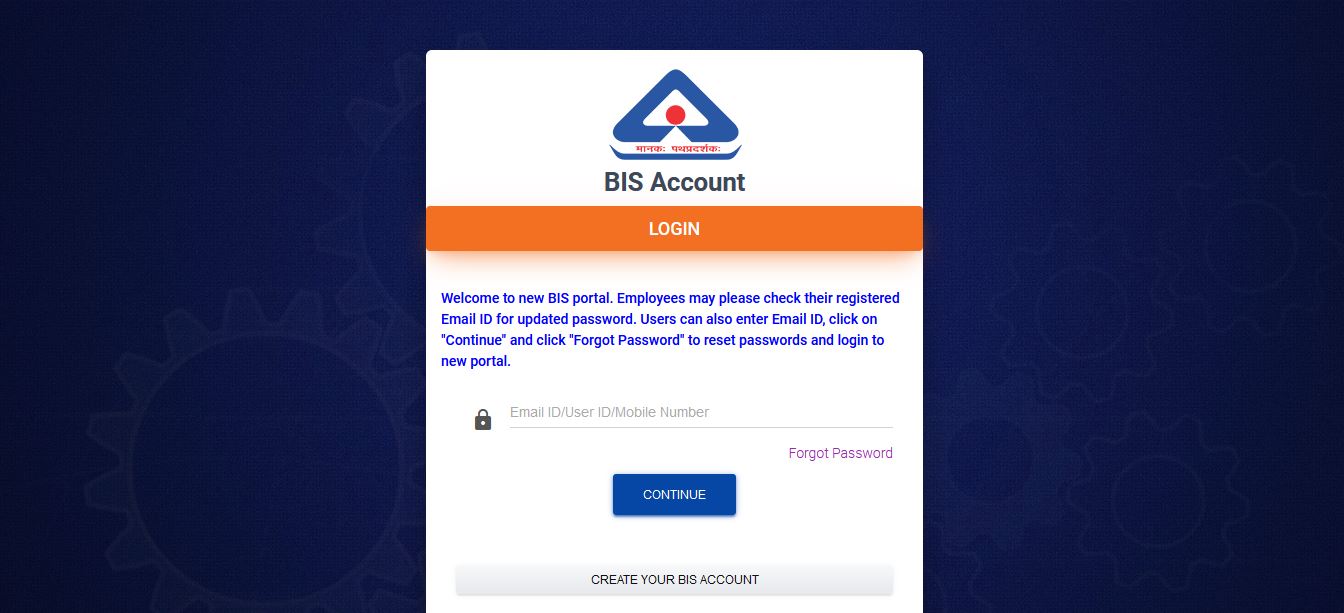 Updated on: August 22nd, 2024 5:06 PM
Updated on: August 22nd, 2024 5:06 PM
BIS Certification for Footwear Manufacturers
Per the Quality Control Orders on Footwear Products issued by the Department for Promotion of Industry and Internal Trade (DPIIT), 27 footwear products have been brought under compulsory BIS certification from 1 July 2021. To facilitate footwear manufacturers in obtaining BIS certification, a set of guidelines has been prepared by the Bureau of Indian Standards (BIS). The current article explains the guidelines on BIS certification as per Scheme-I for Footwear Manufacturers.BIS Certification in India
BIS Certification means providing a third-party guarantee of the quality, safety, and reliability of products to the customer. BIS Certification is voluntary; however, the Government of India has made BIS certification mandatory for certain products taking into consideration public health. Per the Quality Control Orders on Footwear Products issued by DPIIT, 27 footwear products have been brought under compulsory BIS certification from 1 July 2021. BIS Certification is provided in India by the Bureau of Indian Standards (BIS).Quality Control Orders on Footwear Products
The following three QCOs have been issued covering footwear made from rubber/polymeric material, leather, and other materials, and PPE footwear:- Footwear made from all-Rubber and all Polymeric material and its components (Quality Control) Order, 2020
- Footwear made from Leather and other materials (Quality Control) Order, 2020
- Personal Protective Equipment – Footwear (Quality Control) Order, 2020
Indian Standard for Footwear Products
As described above, there are 27 Indian Standards for footwear products that are under mandatory BIS certification.| IS Number | Product |
| IS 1989: PART 1:1986 | Specification for leather safety boots and shoes: Part 1 for miners |
| IS 1989: PART 2:1986 | Specification for leather safety boots and shoes: Part 2 for heavy metal industries |
| IS 3735:1996 | Canvas Shoes, Rubber Sole |
| IS 3976:2003 | Safety Rubber Canvas Boots for Miners |
| IS 3736:1995 | Canvas boots, rubber sole |
| IS 11226:1993 | Leather safety footwear having a direct molded rubber sole |
| IS 14544:1998 | Leather safety footwear with direct molded polyvinyl chloride (PVC) sole |
| IS 15844:2010 | Sports Footwear |
| IS 17012:2018 | High ankle tactical boots with pu - Rubber sole |
| IS 17037:2018 | Anti-riot shoes |
| IS 17043:2018 | Derby shoes |
| IS 15298: PART 2:2016 | Personal protective equipment: Part 2 safety footwear |
| IS 15298: PART 3:2019 | Personal protective equipment: Part 3 protective footwear |
| IS 15298: PART 4:2017 | Personal protective equipment: Part 4 occupational footwear |
| IS 5557:2004 | Industrial and protective rubber knee and ankle boots |
| IS 5557 (PART 2):2018 | All rubber gumboots and ankle boots: Part 2 occupational purposes |
| IS 5676:1995 | Molded solid rubber soles and heels |
| IS 6664:1992 | Rubber microcellular sheets for soles and heels |
| IS 6719:1972 | Solid Pvc Soles And Heels |
| IS 6721:1972 | PVC sandal |
| IS 10702:1992 | Rubber Hawai chappal |
| IS 11544:1986 | slipper, rubber |
| IS 12254:1993 | Polyvinyl chloride (PVC) Industrial boots |
| IS 13893:1994 | Polyurethane soles semirigid |
| IS 13995:1995 | Unlined molded rubber boots |
Fee Structure for BIS certification
The fee structure for BIS certification for Footwear Manufacturers is as follows.| Large Industrial Enterprises | Rs.1,000/- |
| Medium, Micro, and Small Industrial Enterprises | Rs. 500/- |
| Central/ State Govt. Organizations | Rs. 500/- |
| All 'Libraries, Laboratories, Schools, Colleges, Polytechnics, Training Institutes, and health care establishments of the Central/State/ Local government, irrespective of their size, shall be considered small enterprises. | |
Audit Fee
For units located within India:- Large Industrial Enterprises- ₹. 12,000/- per man-day
- Micro, Small, and Medium Industrial Enterprises- ₹. 9,000/- per man-day
- Travel limited to a distance of 250 km from the location of the unit and stay of auditors on an actual basis shall be borne by the applicant or license holder or certificate of conformity holder
- 12,000/-per person-day shall be chargeable for units located outside India:
- The holder of license or certificate of conformity shall bear all expenses, including the cost to BIS of the person-days spent by BIS certification officer(s) in connection with the audit (from the time of departure from the place of posting till return to it), as decided by BIS in its absolute discretion
License or certificate of conformity fee
| Large Enterprises | ₹ 30,000/- |
| Medium, Micro, and Small Enterprises | ₹ 15,000/- |
License Fee for organizations with multiple service outlets
For each additional site (with similar activities) to be covered under the scope, the other license fee to be paid for each site shall be ₹ 5,000/- per siteFlexibility in Fee
- Relaxation in Application Fee For subsequent applications (i.e., second application submitted by any licensee/applicant), no application fee shall be chargeable.
- Relaxation in Audit Fee If the Actual Travel Cost incurred during an audit is less, the DDGR's may grant relaxation up to ₹ 4,000/- per person-day spent traveling for Large Industrial Enterprises and ₹ 3,000/- per person-day spent in traveling for Micro Small, and Medium Industrial Enterprises.
- Relaxation in Licence Fee No license fee for 'Libraries, Laboratories, Schools, Colleges, Polytechnics, Training Institutes, Research institutes and health Care Establishments, organizations working in the interest of society of the Central/State/Local government and Charitable organizations working on No Profit- No Loss basis irrespective of their size
Procedure to get BIS certification for Footwear Manufacturers
The guidelines to get BIS certification for Footwear Manufacturers are explained in detail below:Identify the Indian Standard for the Product
The first step is to identify the Indian Standard for the product. Once you have identified the Indian Standard, please download the Indian Standard from the BIS website after creating the BIS Account.- The applicant needs to access the official website of the Bureau of Indian Standards (BIS). From this page, click on the Create your BIS Account Option.
 BIS certification for Footwear Manufacturers - Login
BIS certification for Footwear Manufacturers - Login
- The BIS Guest Registration page will be displayed. Provide all details and click on submit button.
 BIS certification for Footwear Manufacturers - Registration
Note: Indian Standards, which are adoptions of ISO Standards, cannot be downloaded for free and must be purchased from BIS e-Sales Portal.
BIS certification for Footwear Manufacturers - Registration
Note: Indian Standards, which are adoptions of ISO Standards, cannot be downloaded for free and must be purchased from BIS e-Sales Portal.
- Read the Indian Standard and ensure that the product meets the requirements specified in the Indian Standard and that necessary manufacturing and testing facilities, as prescribed in the Indian Standard, are available in the unit.
- Suppose complete testing facilities are unavailable in the unit since these tests require expensive or sophisticated test equipment. In that case, BIS can also permit manufacturers to subcontract such tests to BIS-recognized labs. For instance, tests for Slip resistance and Innocuousness prescribed for Personal Protective Equipment Part 2 Safety Footwear in IS 15298 (Part 2): 2016 are permitted to be subcontracted by BIS.
- Product Manuals, available on the BIS website, may also be referred to. However, even if the product manual for any product is unavailable on the BIS website, you can still apply for a grant of license without waiting for BIS to publish the product manual. The concerned BIS Branch Office will guide you through the application process.
Create a Login on Manakonline
Access the Manakonlin portal and create an account on Manakonline, the BIS application portal. Apply for a license through this account. BIS certification for Footwear Manufacturers - Manakonlin Registration
BIS certification for Footwear Manufacturers - Manakonlin Registration
Choose Indian Standard
While applying, the applicant needs to select the applicable Indian Standard for the product from among the 27 footwear products. Note: If you are making more than one product, separate applications must be submitted for each product. Two modes of applications are available. Option 1 (standard procedure) The trader can apply without getting the products tested by a BIS-recognized laboratory. The license will be granted after satisfactory inspection and receipt of conforming test reports from BIS-recognized labs. Option 2 (simplified procedure) It is applicable if BIS recognized lab is available for the product. The trader needs to get the products tested from a BIS-recognized lab per the applicable Indian Standard and apply with complete and conforming test reports. The license will be granted after a satisfactory inspection. A "verification sample" shall be drawn during the visit, and the permit will be reviewed after receipt of the verification sample test report.Provide Required Information
During the application process, follow the on-screen instructions of the system to Upload/provide the following detail.- Raw materials
- Factory location
- Manufacturing process
- Machinery
- Plant layout
- Testing personnel etc.
Address any queries raised by BIS
Once the application is registered, an application number will be provided. Please check your communication window in the Manakonline Portal. If BIS has raised any queries, respond to the same immediately and address all questions.Confirm the Date for Factory Inspection
- Once BIS has proposed a factory inspection date, confirm the inspection date at the earliest (within ten days of application submission), failing which the application may be processed for rejection/closure.
Make Payment and Obtain BIS Licence
For Option 1:- If and when conforming/passing test reports are received, and no action is pending from the inspection visit, BIS will process the application for a license grant.
- After Factory Inspection, if no action is pending, BIS will process the application for a license grant.
- Once it is decided to grant the license, you will be requested by BIS to submit the requisite payment. Once payment is received, your license number will be generated and communicated to you.
Grant of Licence
- After granting a license, the applicants must follow the Scheme of Inspection and Testing and the terms of the BIS license.
- BIS conducts factory and market surveillance activities after granting the license. Please extend all possible cooperation/assistance to BIS officers or BIS Authorized Agencies during surveillance activities.
Popular Post

In the digital age, the convenience of accessing important documents online has become a necessity...

The Atalji Janasnehi Kendra Project that has been launched by the Government of Karnataka...

The Indian Divorce Act governs divorce among the Christian couples in India. Divorce...

When an individual has more than a single PAN card, it may lead to that person being heavily penalised, or worse,...

Employees Provident Fund (PF) is social security and savings scheme for employee in India. Employers engaged...


